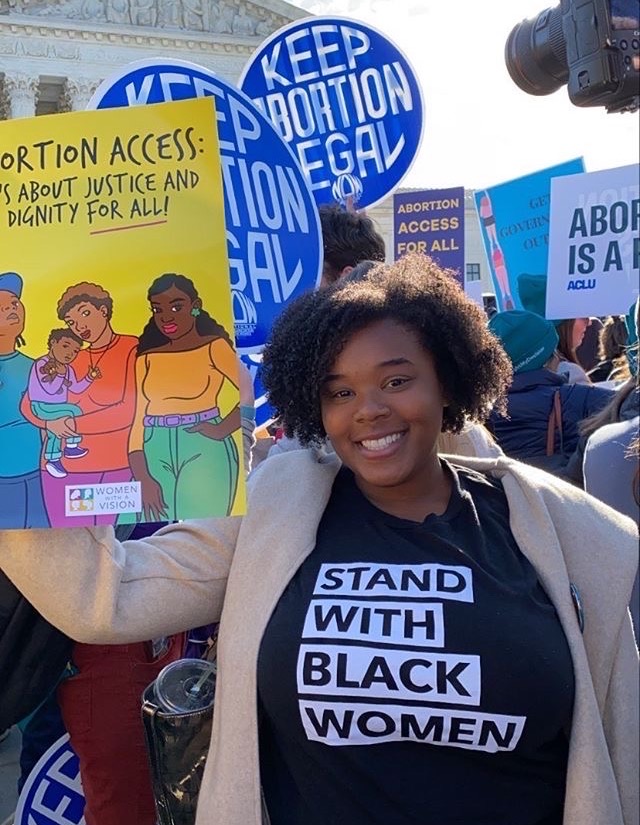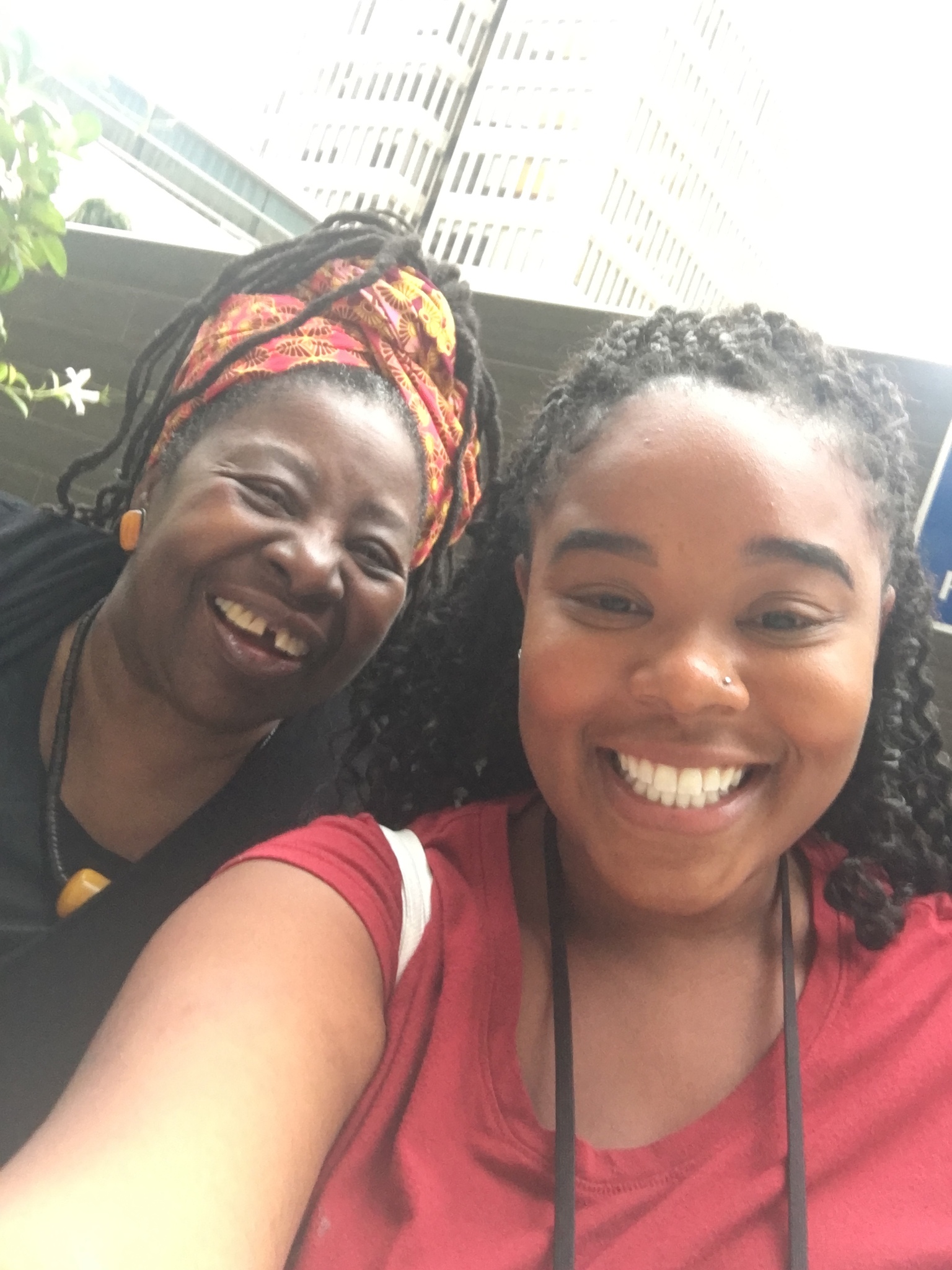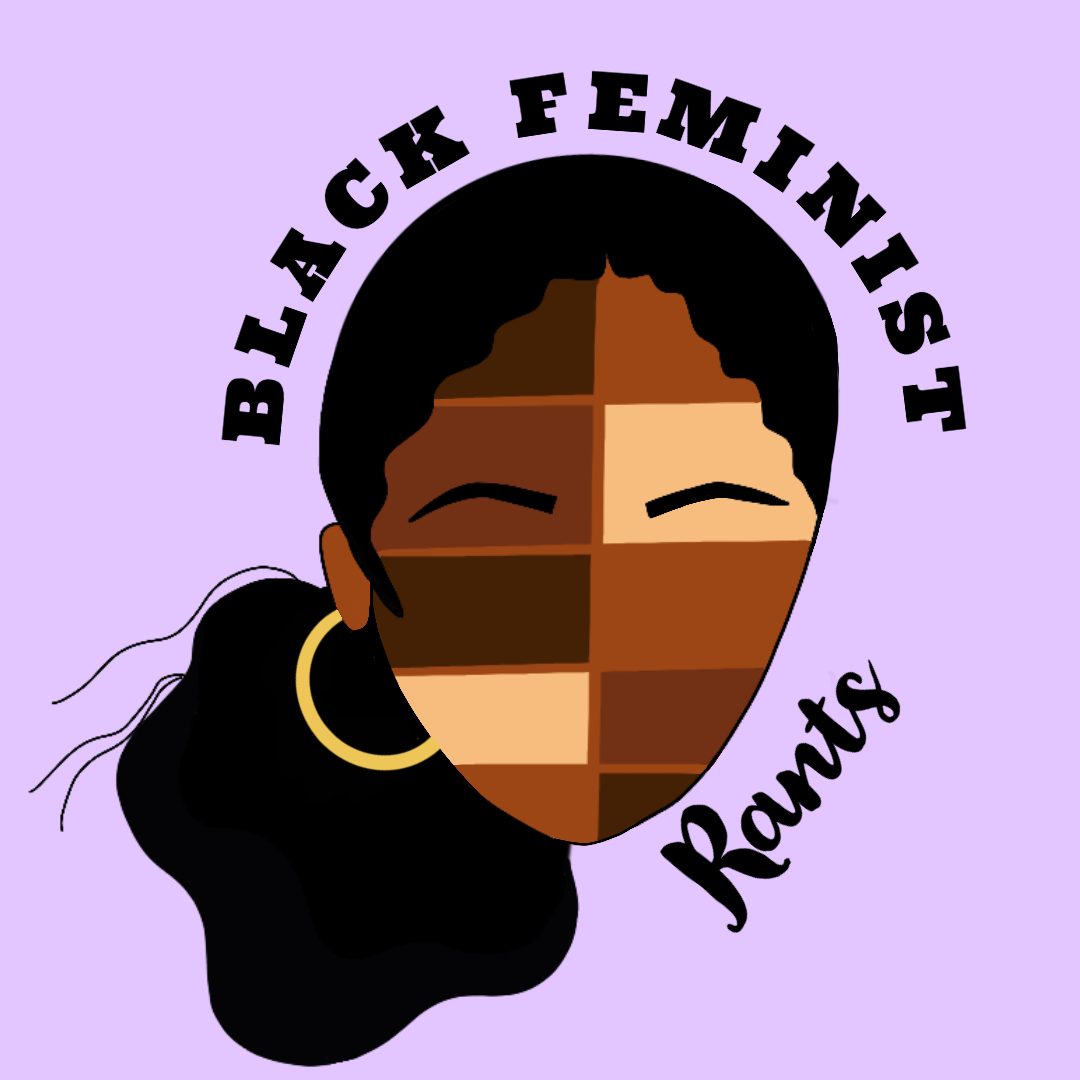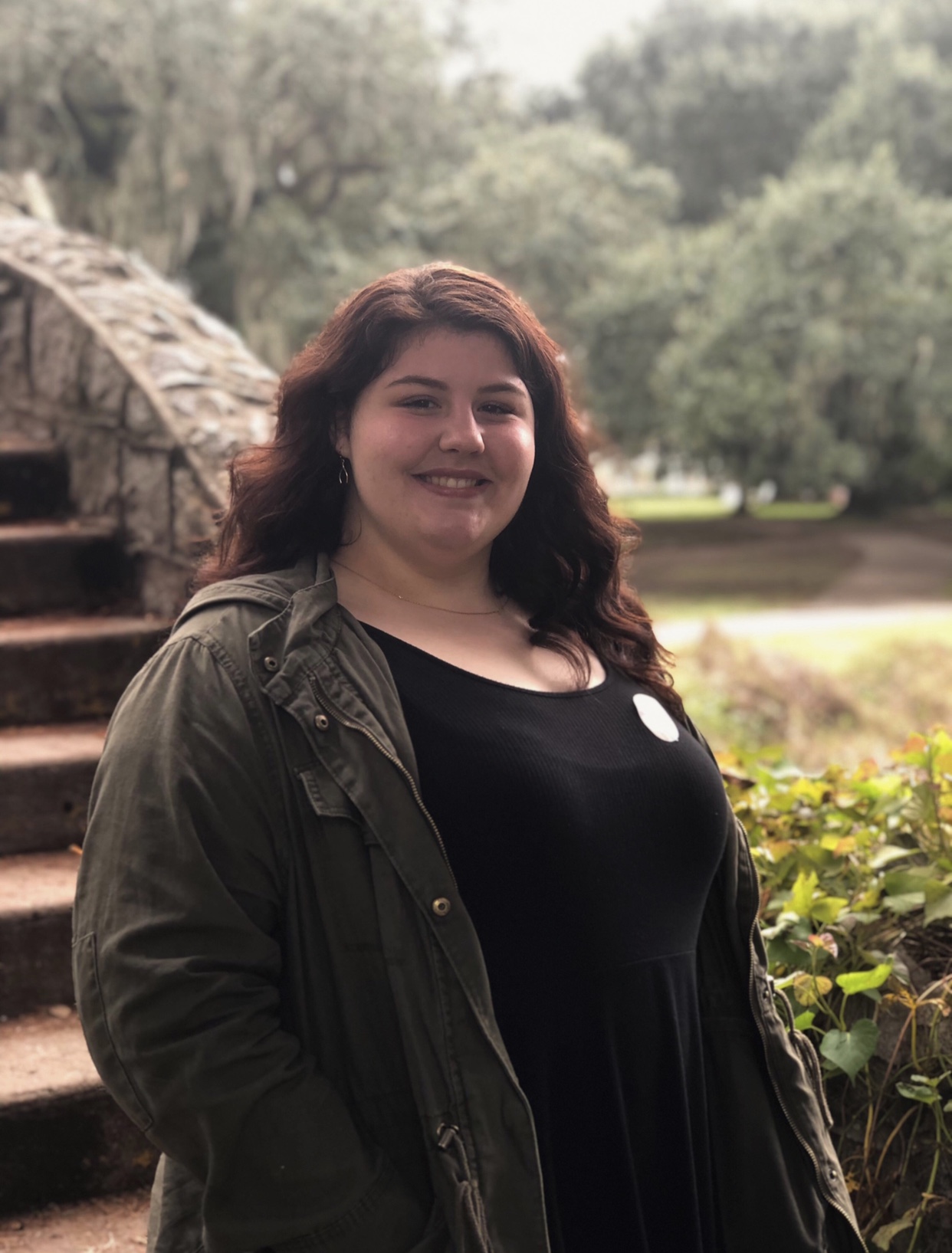LaKia Williams: Bringing Reproductive Justice To a Campus Near You
By Madeline Bolin (LA ’23)
This interview was originally conducted for Her Campus Tulane.

What is reproductive justice? What are emergency contraceptives? Who is LaKia Williams (SE ’21)? These are all questions I explored when I interviewed LaKia Williams over the summer to learn about Big Easy E.C., a service that is committed to providing free emergency contraception and other sexual health products to students on Tulane and Loyola’s campuses.
Who is LaKia Williams?
LaKia is a current senior at Tulane studying neuroscience with a minor in Africana Studies on the pre-med track with the goal of one day becoming a gynecologist and abortion provider. She is a reproductive justice advocate, previous president of Students United for Reproductive Justice, and founder of Big Easy E.C.
What is Reproductive Justice?
LaKia: So my definition of reproductive justice is informed by SisterSong who kind of gave it a definition, but essentially it is having autonomy over one’s body, having the right to choose to become pregnant, the right to choose to have children, not to have children, and to parent those children in a safe and healthy environment. So, essentially, the right to have an abortion, the right to have children, if you want them. So think about eugenics and how people have been forcibly sterilized so that they cannot reproduce and have children, or think of climate justice and how so many Black and brown people live near industrial plants that can affect health, or the over policing of Black and brown neighborhoods and how police brutality is a threat to people’s lives, these are all components of reproductive injustice.
To break that down, reproductive justice is a movement to liberate marginalized people when it comes to the larger picture of reproduction, including choice, abortion, pregnancy, birth, and raising children.
Madi: So, in a phrase, reproductive justice is taking reproductive rights and making them intersectional.
Lakia: No. So that’s a common misconception that reproductive justice was kind of reactionary to reproductive rights not being inclusive to other people. Reproductive justice is kind of its own separate thing that just happens to have overlap with reproductive rights or abortion access. But it more so focuses on the lived experiences of oppression of marginalized people, mainly Black and brown women, but also femmes and nonbinary people as well.
What is SURJ?
SURJ stands for Students United for Reproductive Justice, a Tulane student organization that LaKia was president of last year who she partnered with for the creation of Big Easy E.C. Reproductive justice is different from reproductive rights as it was birthed from the lived experiences of reproductive oppression of Black and brown women who saw a need within their communities and created a movement to achieve those needs. SURJ is dedicated to promoting the idea of reproductive justice and bringing it to our community.
What is Emergency Contraception?
Emergency contraception, E.C. for short, is a pill that you can take after unprotected sex to reduce your chance of unintended pregnancy. There is also an IUD version of E.C., but the most accessible form of E.C. is the pill, often referred to as “the morning after pill.” These pills usually work by preventing ovulation. So, if you’re in a situation where your primary form of birth control has been disrupted, or you did not use any birth control, when having sex, you can take an E.C. pill, usually within a few days, to stop ovulation and therefore reduce the possibility of pregnancy.
What is Big Easy E.C.?
The summer after her first year at Tulane, LaKia went to a Planned Parenthood conference where she overheard several other college aged people talking about emergency contraception and problems of access to it for college students.
LaKia: So emergency contraception is pretty expensive. It’s up to $50. You can get it around $40 if it’s off brand. And I know in my experience with me and my friends, freshman year, we couldn’t have cars on campus, so just getting off campus and getting to the E.C. was hard, especially at times when a lot of people need E.C. [mostly during the] weekend. There was the burden of transportation and then the cost of transportation because you could UBER or whatnot. And then the actual cost of the medication.
Madi: Plus the judgment that comes along with the process. I know there are so many people that I’ve talked to that are like, “Yeah, I don’t buy things like condoms or emergency contraception because I feel so ashamed to be in there and so and so people are judging me for it. And like, you’re valid, but also it’s very important.
LaKia: Right. Definitely. That’s a big part of it. So because of all those things, it was definitely prohibitive to get E.C. as a college student. And in general, honestly.
LaKia didn’t think much of it at the time, but when she left the conference, she looked into it, and there were several other students creating programs that were finding ways to increase access to, usually free, emergency contraception on college campuses. So, she reached out to a local New Orleans organization, ReJAC.
From there, LaKia connected with student activists all across the country who created programs similar to Big Easy E.C. She went to a conference in Washington D.C. where she met one student who was actually able to get a law passed in their state to stop certain prohibitions on access to E.C. and several students who had started peer to peer E.C. distribution programs on their campuses.
LaKia: That’s where [Big Easy E.C.] was born, at that conference. I was like, “Wow, I can really do this.” It’s different when it’s adults who do this, but these people are my age who would have the same fears as me doing this. So it gives you the confidence to move forward with it.
Within a week of getting back to Tulane for the next year, SURJ met and got Big Easy E.C. off the ground with the help of materials and advice from all of the student activists that LaKia had connected with and a donation of E.C. from ReJAC. Big Easy launched its program by tabling at the Sexual Health Fest hosted by Tulane’s chapter of NAMI that year, and within fifteen minutes of packing everything up, their hotline was getting texts with requests for E.C.
LaKia: And at that time we were taking donations because we had our first supply of E.C., but we were anticipating buying the rest. Then, later down the line in Big Easy E.C.’s life, the Tulane Health Center found out about us, and at the time they were providing E.C. in the pharmacy during their open hours, which are pretty limited. But because of our organizing they decided to provide their E.C. for free and to supply us with our E.C. that we distribute to students. So we no longer ask for a donation because we have a steady supply from the Tulane Health Center. So that was amazing. I was very excited about that. Not all schools have that, which is why we also supply to Loyola students if they need because of their university’s restrictions.
How Does Big Easy E.C. Work? How Do I Utilize It?
Big Easy E.C. operates through their sexual healthline number at (504-215-8634), which is available 24/7 for students to text to ask for emergency contraception. Big Easy has about ten volunteers who sign up for two to three shifts per month in which they are on call 24/7 to answer the texts sent into the healthline. When you text the healthline, they respond and ask you about how you would like to get your emergency contraception delivered to you. You pick the place and time, and they will meet you then and there with a discrete package containing emergency contraception and condoms. It is one hundred percent free, discrete, and on the terms of those requesting the emergency contraception. LaKia points out that this is an effort of reproductive justice because it is a free and accessible way to provide people with the option to not have children, if that is what they choose, and to have full bodily autonomy.Big Easy E.C. is now also providing free pregnancy tests. Although they do not require donations for their other services, because this service is new, they are accepting donations for this.
After they leave, you are sent an optional, but encouraged, follow up survey asking you some questions so that Big Easy can continue to provide this service and make changes and improvements where necessary.
Madi: What exactly does the survey say?
LaKia: So the survey finds a lot of information about demographics. So it asks for your gender, sex, race etc. And then there’s a question that asks if you’re on financial aid to see if we’re meeting the needs of students with the most financial need. And then it asks about their experience with Big Easy E.C. to see how they learned about us, and would they recommend us. And if they have any notes that they want to share.
How Do You Prevent People From Abusing This Service?
While I was preparing for my interview with LaKia, I was talking to my fairly conservative father about the topic, and he was quite skeptical. He did not immediately reject the idea, but he had his questions; specifically, he asked me how do you prevent students from abusing the service.
Without realizing it, my father had pointed out a common dog whistle used by people who oppose reproductive justice. They might ask about services such as Big Easy, “How do you prevent people from abusing this service?” so that they can mask their disapproval of the service altogether.
Dismissing the argument would be short-sighted: despite it being a façade opposers use to discredit reproductive justice services, the argument has become an actual concern for people who are not aware of the agenda behind it. The point of the argument is to sow seeds of doubt of these initiatives into peoples’ minds to make them question the efficacy of the initiatives, in turn making them more vulnerable to people calling for their dismissal altogether. Also, me avoiding the argument will not prevent people from continuing to think of it.
So, I decided to genuinely ask the question.
Madi: How exactly do you guys get ahead of the possibility of people abusing the service?
LaKia: And what do you mean by abusing it? How would they abuse it?
Madi: Getting too much? Do you guys have a limit on how many individual pills you give out at a time or how many times people use it in a month or so?
LaKia: So I don’t believe that people can abuse it. I think that if people are routinely using emergency contraceptives, that means that they probably don’t have access to more traditional, long term forms of birth control, the pill, the patch, etc. And that is a barrier within itself. So they have to use this free service, you wouldn’t want to have to call someone every time you need birth control. You’d rather just own your own supply. So, obviously there’s a need, and we want to service those people with those needs. Something that has been discussed but we haven’t moved forward with at this point is partnering with a campus department to hopefully have a program where we can identify people who are using it more often and offer them support if they’re having issues with affording birth control. Finding funding or different ways for them to be able to afford birth control on their own. But it’s not like they’re in trouble for using Big Easy E.C., we want to help them. But if there is a way we can better help them by giving them resources to get something that would be more beneficial, we would prefer to do that.
Madi: That is a great response, “Well, we don’t see it as abuse. We see it as people needing our resource. So we find those people and we provide them an additional resource.” It’s pointing out that the “abusing the service” argument is a non sequitur, because it’s not about abuse, it’s about need.
Is This Feminist Work?
This question turned out to be much more loaded than either of us first realized. I first asked if she thought that Big Easy E.C. was doing feminist work, but then I back-peddled and stipulated that, in my opinion, there cannot be feminism without it being intersectional. Even then, we kept having to make explanations and stipulations about what feminism is that revealed a lot about our goals as feminists and as advocates.
LaKia: So, obviously, I’m a Black woman and I have this contentious relationship with feminism. I’m definitely a Black feminist. And Big Easy E.C. is run and founded by a Black woman. But still… Ok, I am a Newcomb scholar, which is an honors program based on feminist scholarship. I’m a feminist, I guess. And I would say it’s feminism, but I would say it’s more than that because it’s within the reproductive justice framework. So I say yes, hesitantly. And I have a better answer now. I think that Big Easy E.C. is a reproductive justice project. And I don’t necessarily think it’s feminist because reproductive justice embodies classism and racism and ableism and all the other “isms.” And I think that feminism has not, on a large scale, embraced all those “isms” in the way that reproductive justice has.
Madi: And, not to make assumptions, but to make an assumption: I think that a lot of the possible hesitancy on labeling it feminist work is because so much of what is mainstream seen as feminist work is the work of white feminists, that it’s not intersectional feminist work. And specifically because Big Easy E.C. is a work of reproductive justice, it’s supposed to be intersectional.
A few months after the interview LaKia qualified her original answer after interning with the national Reproductive Justice organization, SisterSong, and learning more about the history of Black feminism.
LaKia: When first asked this question I was at a point in my life where I was really fed up with mainstream feminism or White feminism and its exclusion and focus on optics rather than justice and equity. So in my response I stated that Big Easy E.C. is a reproductive justice project and not a feminist project. But this was a misguided, un-informed answer. Since interning at SisterSong: The National Women of Color Reproductive Justice Collective and having the privilege to interview Loretta Ross, one of the Founding Mothers of RJ, I have since learned that reproductive justice is fundamentally a Black feminist creation. And just because I have my issues with how mainstream entities have misconstrued feminism does not mean that feminism should be thrown away. I now 100% say that my work is a feminist practice, one rooted in Black feminism and Reproductive Justice. I think this evolution speaks to how we are all learning and growing, I have had this development in a 3-4 month time span, which looking back seems so wild to me that I would ever say my work is not feminist, I was essentially allowing white women’s isolation and exclusion of people like me to lead me to disqualify my work from what it was rooted in. That is something I regret but also something I have learned from. And I am grateful to elders like Loretta Ross who call the newer generation in and educate us and remind us to stand in our power. And that no matter what white feminists and women do or don’t do that that will never change the work that we are doing and the work of the people before us who paved the way and created theories around Black feminism and womanism.
Where are SURJ and Big Easy E.C. Going From Here?
LaKia: I think we’re definitely on an upward trend. And I’m very excited for SURJ’s new executive board and for what they’re going to do. I would really like for us to use some of our privileged money that we have from the endowment of Tulane, realizing that Tulane has been led by slave owners and enslaved people have worked on this land. So I think it’s important to use some of that money to give back to the community. I want us to delve into anti-racist thinking around reproductive rights. Reproductive justice already does that, but reproductive rights does not. I hope that we get more and more marginalized identities involved in SURJ because right now I think our E board is more diverse than our general body. But then again, that’s just the nature of Tulane. I want it to be a place where marginalized people feel like they can be involved and that it’s not like a just a white feminist space. That’s one of my really big goals.
I would like to thank LaKia Williams for allowing me to interview her and to provide this information and insight to our community. SURJ and Big Easy E.C. are providing vital resources to our campus and our community, and it is imperative that they receive our support. Look out for more reproductive justice initiatives led by LaKia Williams such as her recently created podcast “Black Feminist Rants.”

LaKia with SisterSong founder Loretta Ross
I would like to thank LaKia Williams for allowing me to interview her and to provide this information and insight to our community. SURJ and Big Easy E.C. are providing vital resources to our campus and our community, and it is imperative that they receive our support. Look out for more reproductive justice initiatives led by LaKia Williams such as her recently created podcast “Black Feminist Rants.”


